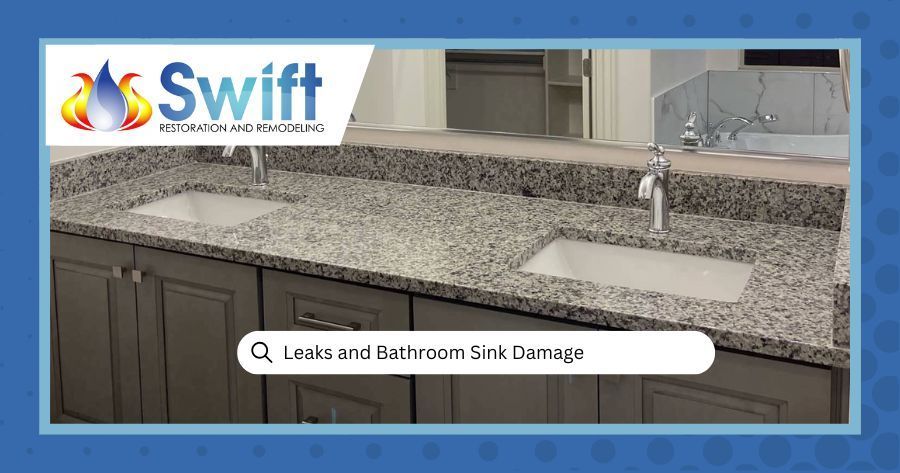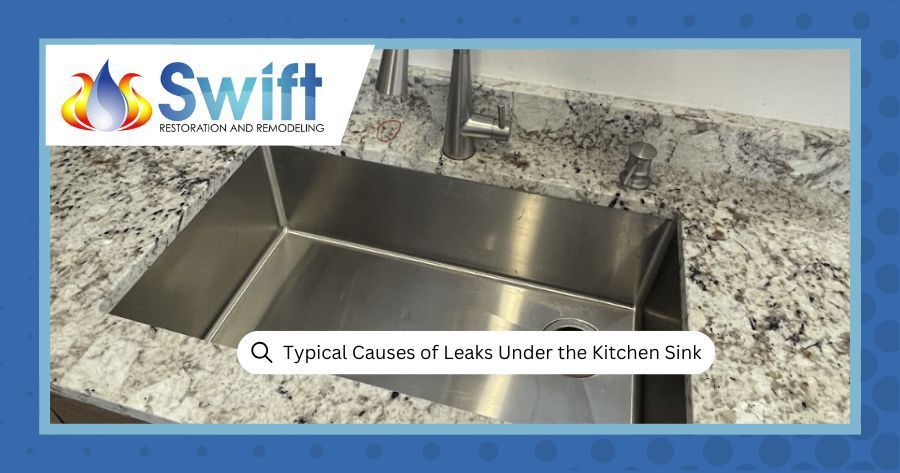
Author: Darin Jenks
An ice dam is a block of ice that forms at the edge of a roof in winter temperatures. Ice dams typically form when the bottom layer of the snow on your roof melts from the warm temperature of your attic. The melted snow travels to the eave and freezes again, creating an ice dam. When ice dams form they block any melting snow from draining off your roof, causing potential damage to your property .
What kind of damage?
Not only will ice dams damage shingles and gutters as they freeze and expand, they can also cause water to puddle and potentially seep under roofing shingles and into the insulation. Over time, the water can travel through your attic, ceilings or walls causing a significant amount of water damage. Because the water starts seeping in through the roof, this type of water damage isn’t typically noticed right away. If the water goes unnoticed long enough it can begin to rot your roof and damage the wood inside your home, not to mention the possibility of mold growth.
How to remove ice dams
Removing ice dams may not be as simple as you think. You can’t just grab a shovel as start smacking away at the ice without causing some damage to your eaves and gutters. Experienced professionals will delicately break the ice dams into small pieces slowly chipping away until the ice dams are gone, or they use heat cables to slowly melt the ice. If you attempt to remove an ice dam on your own, make sure you avoid climbing on your roof as the extra weight can cause frozen shingles to crack and break.
Pro Tip: Once an ice dam has been whittled down, pour some calcium chloride into a bag with holes and leave it on the ice dam. Eventually, it will melt away the ice dam.
What if there is already water damage?
If an ice dam has already started to cause water damage to your Layton home, you will want to contact a professional water damage repair company to assess the situation. The professionals have tools that can detect excess water hiding in your ceiling or walls. After the excess water is found, the experts use special drying equipment to remove the hidden water and prevent additional damage. Keep in mind the ice dams need to be taken care of first or the water damage issue will continue to be a problem.
How to stop ice dams from forming
The best way to stop an ice dam from forming is to keep your roof clear, which may be an unrealistic option during heavy snowfall. Replacing shingled roofs with partial or full metal roofing can go a long way in preventing ice dams. You can also have a professional roofer install water-repellent membranes under your roof to prevent water from seeping through to the insulation. Internally, you can have your attic sealed and properly insulated to prevent the warm air leaks that cause the snow to melt.
A professional water damage restoration company, like Swift Restoration in Ogden, Utah and Layton, Utah can help you quickly restore your home to pre-damaged condition. Contact a professional water restoration company if you experience any winter water damage emergencies.





